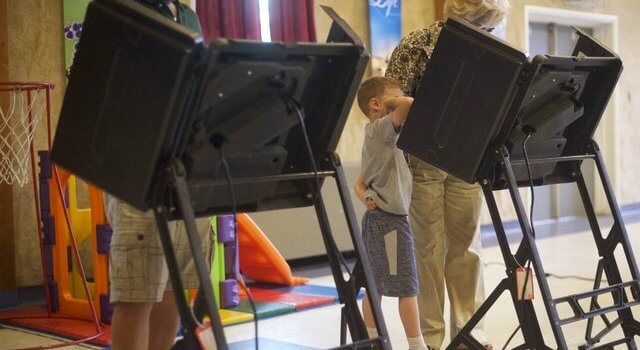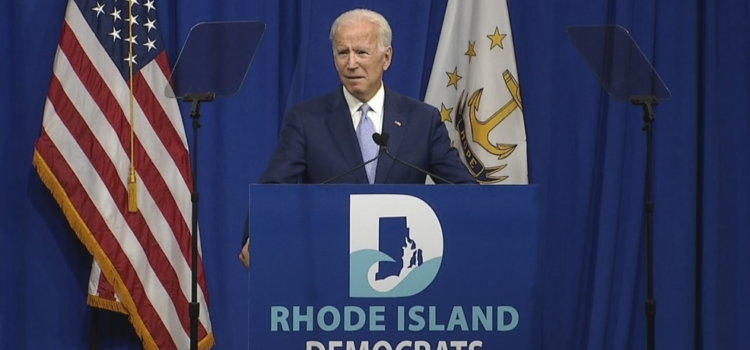By Jacqueline Thomsen
Congress has failed to pass any legislation to secure U.S. voting systems in the two years since Russia interfered in the 2016 election, a troubling setback with the midterms less than six weeks away.
Lawmakers have repeatedly demanded agencies step up their efforts to prevent election meddling but in the end struggled to act themselves, raising questions about whether the U.S. has done enough to protect future elections.
A key GOP senator predicted to The Hill last week that a bipartisan election security bill, seen as Congress’s best chance of passing legislation on the issue, wouldn’t pass before the midterms. And on Friday, House lawmakers left town for the campaign trail, ending any chance of clearing the legislation ahead of November.
Lawmakers have openly expressed frustration they were not able to act before the 2018 elections.
Rep. Tom Rooney (R-Fla.), who introduced the House version of the election security bill, said it was “disappointing.”
“If you want to call it a message that we’re sending to the American people, that we’re doing everything that we can to ensure that the integrity of the vote is sacred,” he said, “If we have these opportunities to do something and we don’t, then that definitely sends the wrong message. That maybe we just don’t care or whatever.”
Rep. James Langevin (D-R.I.), the co-founder of the Congressional Cybersecurity Caucus, said not passing the legislation was “a missed opportunity” to better protect U.S. elections.
“Every community needs to be on guard, alert and realize that the Russians are a very well-resourced and capable bad actor that are again trying to interfere with our elections,” he said.
Sen. James Lankford (R-Okla.), one of the bill’s cosponsors, told The Hill that the text of the bill is still being worked out after recent changes prompted concerns from state election officials and the White House.
It had appeared the bill would make it across the finish line but last month Reuters reported that the White House had stepped in to hold up the bill. A GOP Senate aide told The Hill at the time that it was paused over a lack of Republican support and over concerns raised by outside groups.
The White House did not return multiple requests for comment, and a spokesperson for Senate Rules and Administration Committee Chairman Roy Blunt (R-Mo.), who delayed the bill’s markup, declined to comment further.
Lankford said the White House told him it had not held up the bill. But he added that “they didn’t talk to me about it in advance.”
Like other lawmakers and experts, Lankford pointed out that even if the bill had passed ahead of the midterms, it would still be too late to implement any of the measures ahead of November’s elections.
“The bigger issue is not the legislation,” Lankford said. “The bigger issue is what the administration has done in the meantime to try to actually get all this done.”
The Department of Homeland Security has offered some cybersecurity support to state election officials, and President Trump signed an executive order earlier this month authorizing sanctions against those found interfering in U.S. elections.
Lawmakers also included $380 million for states to update and secure their election systems in an appropriations bill passed in March. That funding was initially authorized under the Help America Vote Act of 2002, passed in response to the 2000 presidential election, but this year’s grants were the first authorized under the law since fiscal 2010.
However, when Democrats tried to pass more election security funding earlier this year, Republicans knocked down the measure, arguing that substantial funds had already been allocated.
Other security bills have also been introduced after the 2016 elections, but the bipartisan bill spearheaded by Lankford and Sen. Amy Klobuchar(D-Minn.) was touted as the best shot to legislation on the books shielding U.S. election systems from cyber attacks.
Even so, it remained the subject of extensive debate: The original bill included a pilot program for states to conduct audits on limiting risks, which would examine a number of ballots to ensure that systems weren’t compromised.
But that program became mandatory in a later version of the bill, costing it support from state officials and advocacy groups who argued the measure would be too great of a burden.
Voting groups have also voiced disappointment at the lack of action, but were quick to praise Klobuchar and Lankford’s bipartisan push to pass legislation.
Vermont Secretary of State Jim Condos (D), the president of the National Association of Secretaries of State (NASS), told The Hill that while many states are already implementing the measures that would be included in the bill, it was disappointing to not have them on the books. NASS has not taken a public stance on the legislation.
He said that the bill would “send a strong message” to bad cyber actors like Russia, which interfered in the 2016 election, as well as to Americans that their election systems are secure.
“I think this would go a long way to helping us let the public know that our systems are strong and, on top of that, that everyone takes [the issue] seriously,” Condos said.
It is unclear if Congress will be any closer to overcoming the hurdles to legislation after the midterms.
But advocates insist they will keep pushing for a solution.
“This is a time for unity where the country has to unite to fight off foreign meddling in our election because that undermines our democracy,” said Marian Schneider, the president of Verified Voting.
But she also noted that the Lankford-Klobuchar bill was originally introduced in December 2017 and that lawmakers had months to finalize the text.
“I think there’s an unfortunate thing going on here that whenever elections is the topic or is the subject area that it becomes politicized,” she said.









